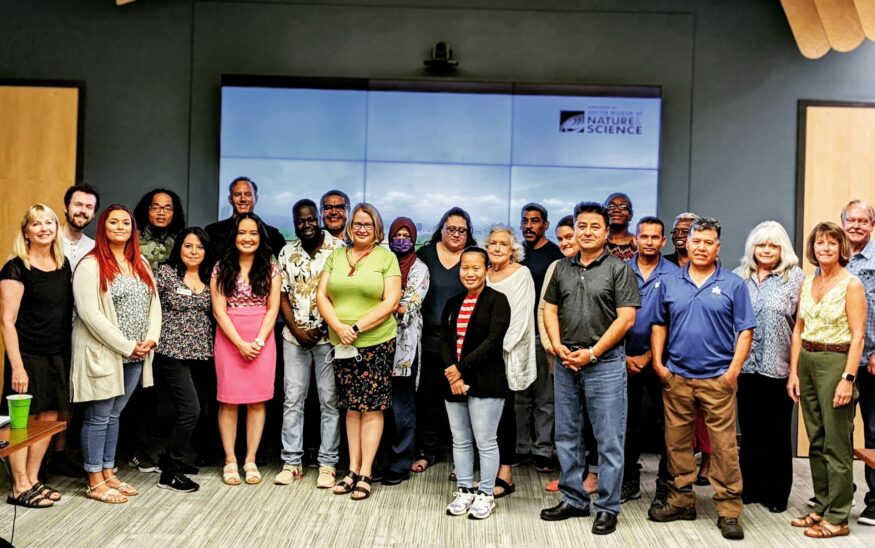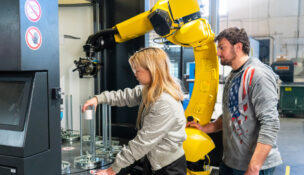Top Company 2023: Nonprofit
Congratulation to Hope Communities, Denver Urban Gardens and the Chanda Center For Health for being featured in our 2023 Top Company award in the Nonprofit sector!
ColoradoBiz Staff //October 13, 2023//


Top Company 2023: Nonprofit
Congratulation to Hope Communities, Denver Urban Gardens and the Chanda Center For Health for being featured in our 2023 Top Company award in the Nonprofit sector!
ColoradoBiz Staff //October 13, 2023//
Now in its 36th year, ColoradoBiz magazine’s Top Company Awards program recognizes businesses and organizations based in Colorado or with a significant presence in the state that are leading the way in their fields, as demonstrated by financial performance, notable company achievements and community engagement.
To be considered, Top Company entrants submitted applications throughout the year online at ColoradoBiz.com. From those entries, which numbered in the hundreds, the magazine’s editorial board narrowed the field to three finalists (in most cases) in each industry category. A judging panel made up of area business leaders and ColoradoBiz staff then met to compare notes on the finalists and decide winners in 14 industries plus the Startup category, for companies in business four years or less.
Congratulations are in order not only to the 41 winners and finalists profiled on the following pages, but to all the companies that took the time to tell us about their achievements and obstacles surmounted over the past year that make them worthy of Top Company consideration.
READ: Fall 2023 Issue — Top Company Awards, Inside the CHIPS and SCIENCE Act, and More
WINNER
Hope Communities
Denver, CO
Website: hopecommunities.org
Hope Communities provides people in need with affordable housing, rental assistance and pathways to opportunities that foster personal and economic growth. Founded in 1980 by concerned citizens, Hope has four Denver locations that serve as hubs for the development of close-knit, supportive communities.
Hope’s no-cost programs and services are tailored to meet individual client needs and are not limited to residents. The organization recognizes the connection between the lack of opportunities people with limited economic means often face, and the inability to achieve social and economic mobility, health and well-being.
Addressing those economic challenges, Hope provides resources and coaching to help clients secure jobs with livable wages and benefits; it strives to help clients understand finances and the means by which they can achieve their economic goals, including credit score improvement and safety-net savings.
The organization points to a recent report from the National Low Income Housing Coalition that there is not a single state in the U.S. in which the average wage of renters who work full time covers the average rent of a two-bedroom apartment in their state.
In 2022, Hope Communities served 3,235 clients, its largest number ever and a 75 percent increase over 2021. In the past six years, Hope has tripled its staff, from 12 to 36 (with 22 languages spoken among staffers). Just as impressive: 87 percent of Hope’s income is spent on programs; only 13 percent on fundraising and administration.
Other highlights in 2022 included 12 affordable-housing clients purchasing homes; 278 affordable units rented at 30 percent to 80 percent of Denver’s AMI (area median income); 921 refugees served; 46,414 meals served; and 76 post-incarceration clients assisted with housing, skills resources and employment.
FINALISTS
Denver Urban Gardens
Denver, CO
Website: dug.org
Denver Urban Gardens was formally incorporated in 1985 to support Denver residents in creating sustainable, food-producing neighborhood community gardens. Over the past 38 years, its network of community gardens has expanded across six metro Denver counties, including 193 community gardens and 15 food forests throughout metro Denver, more than 70 of which are school-based community gardens.
In addition to gardens, Denver Urban Gardens (aka DUG) programs provide access, skills and resources to help people grow food in the community and regenerate urban green space through youth programming, skill-building workshops for adults, community-centered events, volunteer workdays, free and reduced-cost seeds and seedlings, and compost training.
Denver Urban Gardens is changing the perception of what it means to be a climate organization. While the organization continues to build its network of community gardens, the education effort around the climate impact of gardens, food forests, and urban green space development is restructuring how we imagine thriving cities. Two major projects are leading this charge at DUG.
The first is DUG’s Urban Garden Project. The project is meant for national expansion of the DUG model and focuses on the intersection of social and environmental issues such as food insecurity; climate change; loss of urban green space; loneliness and the collective mental health crisis.
The second is the Etkin Family Food Forest Initiative (FFI). As Denver works to grow its urban tree canopy, DUG’s food forest efforts are a crucial component. A food forest is a highly integrated community of food-producing plants with several vertical and horizontal diverse layers of trees, shrubs, annuals and perennials that thrive together while yielding food, medicine and habitat.
In 2022, DUG successfully piloted the FFI, installing food forests at six existing DUG gardens, planting 92 trees and 147 berry bushes. In 2023, DUG has planted nine new food forests with plans to reach 20 total by the end of the year.
The Chanda Center For Health
Lakewood, CO
Website: chandacenter.org
Established in 2007, The Chanda Center for Health strives to improve health outcomes for people living with long-term physical disabilities by delivering comprehensive integrative health care that includes acupuncture, behavioral health, chiropractic, dental, massage, adaptive yoga, physical therapy and care coordination.
In 2009, the organization led a movement to pass Colorado House Bill 1047, which created the Spinal Cord Injury (SCI) Waiver, thus offering acupuncture, massage and chiropractic care through Medicaid to evaluate cost effectiveness and improve quality of life for persons with spinal cord injuries in the Denver area. In 2021, the movement evolved and expanded (it’s now the CIH Waiver) to other diagnoses and to become a statewide benefit.
Partners include Jefferson Center for Mental Health, Thrive PT, Craig Hospital, Native Roots and Wana Cares. By partnering with these organizations, participants (who already have trouble with transportation) can now get these services at The Chanda Center for Health.

























